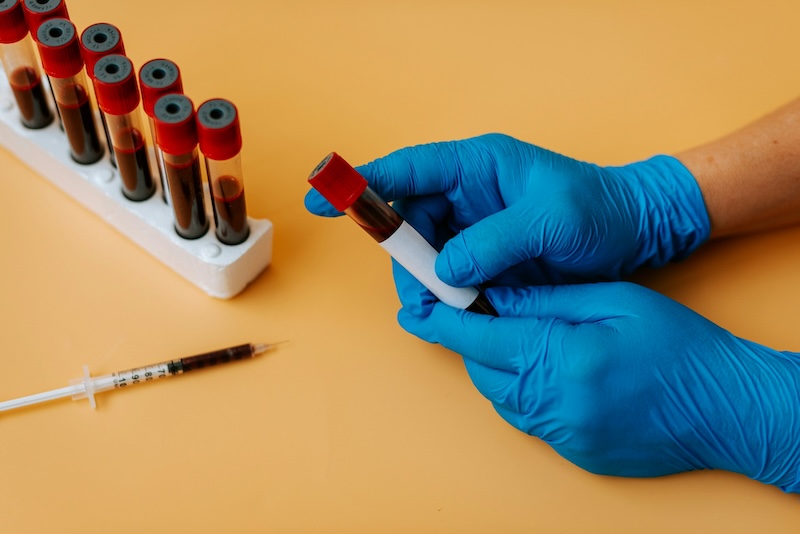A new Harvard Medical School study linking the loss of the metal lithium to Alzheimer’s disease is giving some hope to Long Island advocates, who...
Vous n'êtes pas connecté
Rubriques :
 - WN.COM - Health - 19/Aug 13:54
- WN.COM - Health - 19/Aug 13:54
Research on reversing Alzheimer’s reveals lithium as potential key
By Mark Johnson The Washington Post Seven years of investigation by scientists at Harvard Medical School has revealed that the loss of the metal lithium plays a powerful role in Alzheimer’s disease, a finding that could lead to earlier detection, new treatments and a broader understanding of how the brain ages. Researchers led by Bruce A. Yankner, a professor of genetics and neurology at Harvard Medical School, reported that they were able to reverse the disease in mice and restore brain function with small amounts of the compound lithium orotate, enough to mimic the metal’s natural level in the brain. Their study appeared Aug. 6 in the journal Nature. “The obvious impact is that because...
Articles similaires
Harvard study links loss of metal lithium to Alzheimer's disease, giving hope on Long Island
A new Harvard Medical School study linking the loss of the metal lithium to Alzheimer’s disease is giving some hope to Long Island advocates, who...
Lithium deficiency could lead to Alzheimer's, study suggests
The study shows how lowered levels of lithium in the human brain are one of the earliest changes leading to Alzheimer's, and that a similar depletion...
Lithium deficiency could lead to Alzheimer's, study suggests
The study shows how lowered levels of lithium in the human brain are one of the earliest changes leading to Alzheimer's, and that a similar depletion...
A new way to halt Alzheimer’s cognitive decline
Scientists at the University of Virginia School of Medicine have made a breakthrough that could change the way we treat Alzheimer’s disease and...
Lithium deficiency emerges as a hidden driver of Alzheimer’s
What is the earliest spark that ignites the memory-robbing march of Alzheimer’s disease? Why do some people with Alzheimer’s-like changes in the...
Alzheimer's and the Missing Element: Is Lithium the Key?
For decades, scientists have been puzzled by a bcentral mystery of Alzheimer's disease: /b what sparks the earliest brain changes, and why do some
Harvard expert reveals jobs that may protect you from Alzheimer’s disease
A Harvard study reveals that taxi and ambulance drivers have lower Alzheimer's-related death rates, potentially due to the constant mental navigation...
Harvard expert reveals jobs that may protect you from Alzheimer’s disease
A Harvard study reveals that taxi and ambulance drivers have lower Alzheimer's-related death rates, potentially due to the constant mental navigation...
New blood test can diagnose and stage Alzheimer’s disease
A newly developed blood test for Alzheimer’s disease can not only help diagnose the condition but also determine how far it has progressed,...
Les derniers communiqués
-
NASA's Webb telescope discovers new moon orbiting Uranus
National Aeronautics and Space Administration - 22/08/2025
-
InventHelp Inventor Develops New Winter Hose Accessory (SGM-543)
Inventhelp - 22/08/2025
-
Netskope Files Registration Statement for Proposed Initial Public Offering
Netskope - 22/08/2025
-
Anesthesia and Respiratory Devices Market to Hit $74.8 Billion by 2030
BCC Research - 22/08/2025
-
RDDT Investors Have Opportunity to Lead Reddit, Inc. Securities Fraud Lawsuit with the Schall Law Firm
Schall Law Firm - 18/08/2025
-
90% of Games Developers Already Using AI in Workflows, According to New Google Cloud Research
GOOGLE - 18/08/2025
-
Zerova Partners with Yunex Traffic to Strengthen After-Sales Support in the UK
Zerova - 18/08/2025
-
UFC 319: Chimaev wins middleweight championship
UFC - 18/08/2025
-
Siemba Named a Sample Vendor in Three 2025 Gartner® Hype Cycle™ Reports for the Second Year in a Row
Siemba - 16/08/2025
-
Faruqi & Faruqi Reminds Capricor Investors of the Pending Class Action Lawsuit with a Lead Plaintiff Deadline of September 15, 2025 – CAPR
Faruqi & Faruqi, LLP - 15/08/2025



